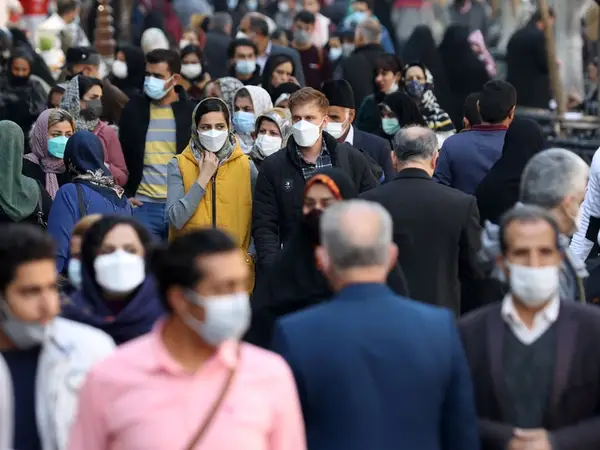Iran’s president Ebrahim Raisi faces a dismal approval rating of 28 percent, as 87 percent surveyed recently named the ailing economy as their number one issue.
An important factor contributing to the economic and social crisis the Islamic Republic faces is United States’ sanctions in the absence of a nuclear deal with the West.
“The single factor that Iranians thought could positively impact the future of the country is a successful nuclear agreement between Iran and the West, which might improve their economic situation,” the company that conducted the survey said in a press release.
Raisi’s approval rating is the lowest since 1997 when data has been collected on Iranian presidents, Stasis, a consulting and survey company based in Washington DC said on Wednesday [June 29], when it released the results of aa survey conducted from June 12-16.
Stasis Consulting conducted the survey through phone interviews, as the Iranian government would not allow a foreign-based company to independently conduct a field study. The sample of 1,197 people aged 18 and older were included from every Iranian province.
The results are not surprising given the deterioration of economic conditions since Raisi assumed office last August and with the media, politicians and citizens fiercely criticizing the hardliner president for the unfolding economic chaos.
It is not just the impact of United States’ sanctions on the economy, as critics blame Raisi for lack of a credible plan to deal with runaway inflation, above 50 percent, and food prices rising to an alarming level above 80 percent in May-June compared to same period last year.
“The result of this survey shows that most Iranian citizens have distrust in government, are pessimistic about their future, and are dissatisfied with the direction of the government and the performance of the president,” said Arash Ghafouri, President of Stasis, known for its regular polling on Iran-related issues.
However, it is clear to most Iranians that a nuclear agreement with the West would lift economic pressure and improve the situation for the average citizen. Iran has so far refused to accept an offer made by the US to return to the 2015 nuclear agreement, capping its program in exchange for removal of sanctions imposed since 2018.
“Most Iranians (55 percent) believe that Iran should make a deal with the West regarding Iran’s nuclear issues, as opposed to only 17 percent who are explicitly against such an agreement. Younger Iranians, between the ages of 18 and 29, are more likely (60 percent) to favor the agreement,” Stasis said, summarizing its survey results.
Raisi was elected in June 2021 in the lowest turnout presidential election in the Islamic Republic’s 43-year history, with official results saying 48 percent cast ballots, while some critics claimed the real number was even lower.
The survey asked respondents about the low turnout and 46 percent answered “distrust in the regime” as the leading reason. Half of those who voted for Raisi would not for him or not participate in the election again.
Another interesting survey result was Iranian attitudes toward the Russian invasion of Ukraine.
“Thirty-five percent of respondents mentioned they have sympathy toward Ukraine, as opposed to just 12 percent who favor Russia. Another 24 percent have no sympathy toward either country. The level of sympathy toward Ukraine is higher among Iranian youth between the ages of 18 and 29 (41 percent),” Stasis Consulting said.
